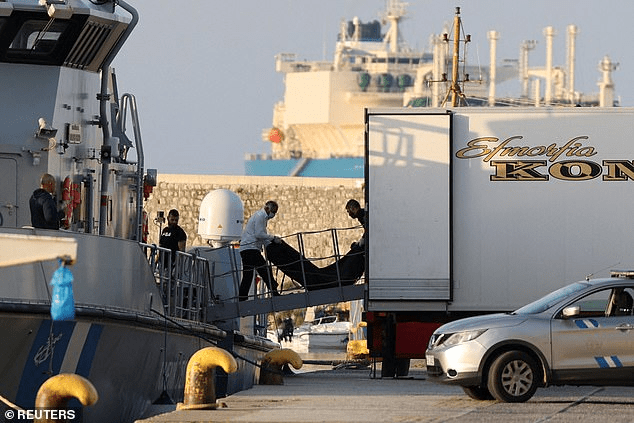To seek greener pastures, meet relatives or friends, seek refuge from conflict- these amongst others account for reasons why people migrate to new lands.
The legal pathways to other countries have been contorted into a labyrinth of many processes and long waits, forcing migrants and refuge seekers to yield to smugglers and undertake precarious journeys to European countries such as Italy.
More often than not, these dangerous and illegal voyages, made on the high seas, cost people more than the fees they had to pay to their smugglers. Their very lives become the ultimate price paid as many are unable to reach the coast, meeting their death while seeking a future of hope. Aboard battered sea vessels, migrants are at the mercy of the sea when catastrophe strikes.
Traveling to Europe by sea using the Central Mediterranean route from North Africa (mainly Libya and Tunisia) to Italy continues to be the most dangerous migration route in the world. The IOM has recorded more than 21,000 deaths and disappearances in the central Mediterranean since 2014.
Even though, people have died while making these journeys, others are willing to take the risk; boarding old fishing boats which are crammed to cross to Italy, then ultimately move to different parts of Europe. One cannot help but agree with Nikos Spanos, a retired Greek coast guard admiral who calls these boats, “floating coffins.”

A number of shipwrecks on the Mediterranean route have been recorded for this year alone. Last week, a boat carrying migrants from Libya to Italy capsized and sank in deep waters off the Peloponnese coast at Greece. So far, 78 bodies have been recovered and 104 people have been rescued.
It was unclear how many were missing, but some initial reports suggested hundreds may have been aboard. According to authorities, it could be the second deadliest shipwreck ever recorded after the tragic shipwreck of April, 2015 on route to Italy.
On April 18, 2015, the Mediterranean’s deadliest known shipwreck occurred when an overcrowded fishing boat collided off Libya with a freighter that was trying to come to its rescue. Only 28 people survived.
It is not surprising that the boat had Egyptians, Syrians, Pakistanis, Afghans and Palestinians aboard. Syria, suffering the aftermath of a long conflict, is under a number of sanctions, causing poverty and hunger. To these migrants going to Europe gives them a chance to better their lives.
Whose Role Is To Make Safe Pathways?
The U.N. Secretary-General, Antonio Guterres, in a press conference stated that the issue is not limited to Greece only but it is a European problem, stressing that the time for Europe to define an effective migration policy is due.
Meanwhile, Greece and other southern EU nations that typically are the first destinations for Europe-bound asylum-seekers traveling by sea have toughened border protection measures in recent years, extending walls and intensifying maritime patrols.
Italy, for instance, declared a six-month state of emergency in April as a response to rise in migrant numbers crossing the Mediterranean from North Africa. The decision frees up €5m (£4.4m) in funds which will help to quicken reception procedures and repatriation of those not allowed to remain in Italy.
However, Human rights groups contend that Europe’s close border policy leads migrants into the hands of people smugglers who encourage the option of illegal travel.
What do governments do when their desire to deter illegal migration is interpreted by rights groups as forcing migrants to take riskier routes to reach their dream destinations?
Saddled with the responsibility of instituting legal and safe migration routes as well as asylum processes, the EU must quicken its steps in that regard so as to curb the reoccurrence of last week’s sea catastrophe.
The Executive Commission of the EU claims the bloc is close to an agreement on how member countries can share responsibility in caring for migrants and refugees who undertake the dangerous journey across the Mediterranean.
For years, Mediterranean countries have complained that they bear the burden of receiving and processing migrants and have long demanded that other countries step up and take them in.
Nonetheless, what is pertinent is for countries to invest in the creation of better conditions of living, employment as well as quality healthcare so that their citizens do not see emigrating to Europe as their only chance to live good lives.





















